








Exploring Agriculture & Natural Resources in the Region
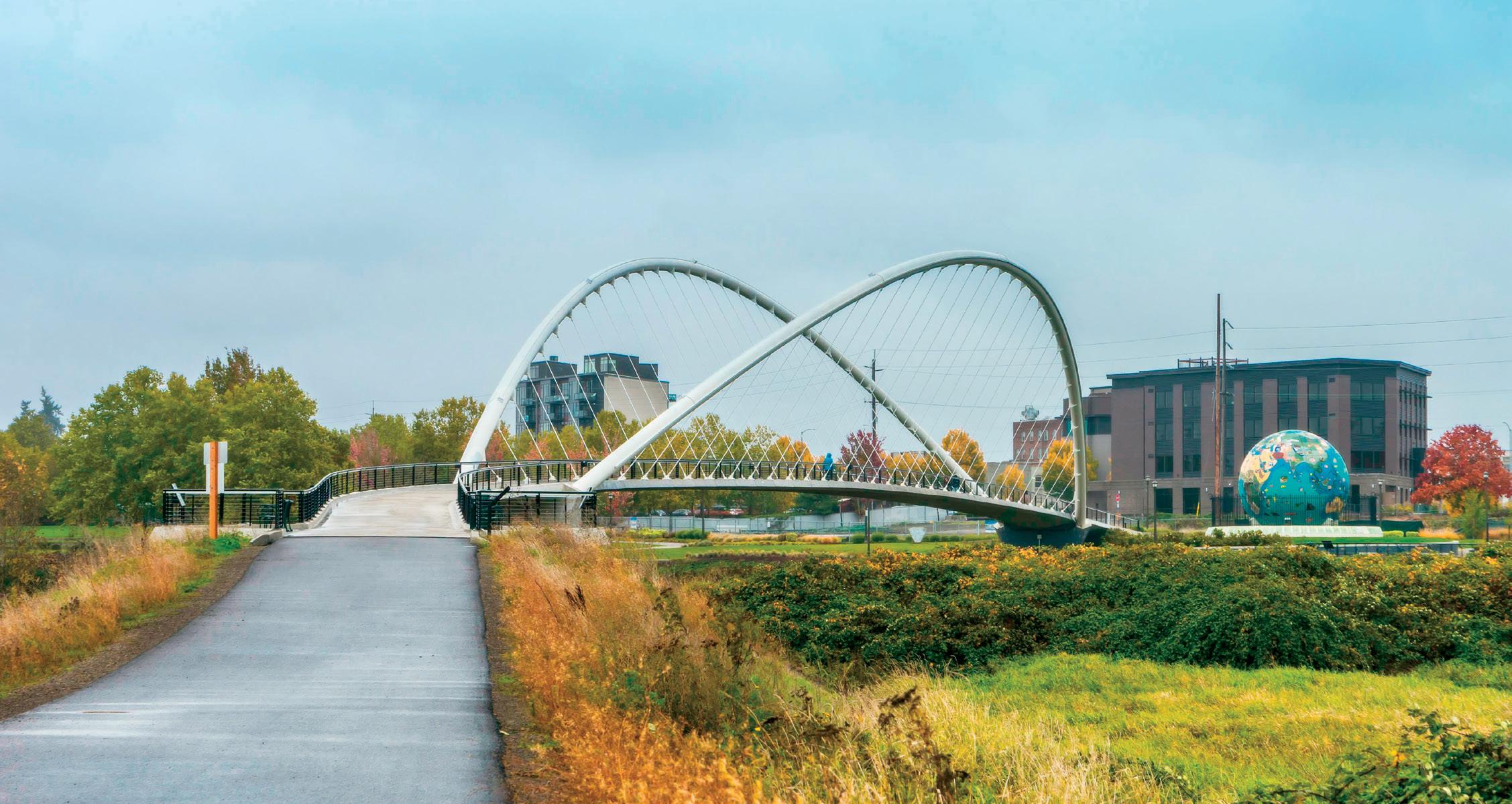

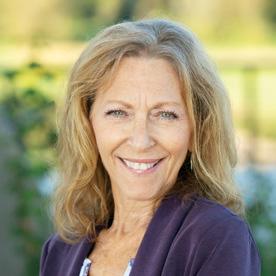
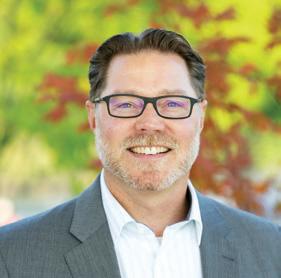





Executive Council
Chair
Kate Schwarzler
Owner, Indy Commons
Vice-Chair
Ryan Allbritton
SVP, Chief Banking Officer, Willamette Valley Bank
Treasurer
Timothy Murphy
VP of Business Operations, DCI
Past Chair
Mike Keane
Shareholder and Managing Officer, Garrett Hemann Robertson
Marin Arreola
President/Business Consultant, Advanced Economic Solutions
Curt Arthur
Managing Director, SVN Commercial Advisors
Ricardo Baez
President, Don Pancho
Authentic Mexican Foods, Inc.
Roxanne Beltz
City Councilor, City of Monmouth
Becky Berger
Owner and CEO, Berger International
Alan Blood
General Manager, Garmin AT, Inc.
David Briggs
Trial Lawyer, Partner, Saalfeld Griggs PC
Tom Christensen
CFO, Oregon Fruit Products
Cathy Clark
Mayor, City of Keizer
Jacqueline Crosby Operations Manager, Crosby Hop Farm
Brent DeHart
President, Salem Aviation
Tony Eaquinto
Southern Regional Manager, Portland General Electric
Steve Elzinga
Partner, Sherman Sherman Johnnie & Hoyt, LLP
Juli Foscoli
Co-owner – PR & Marketing Manager, South Town Glass
Nathan Good
Architect, Nathan Good Architects PC
Steve Horning
VP, Business Relationship Manager, People's Bank
Jessica Howard
President/CEO, Chemeketa Community College
Chris Hoy Mayor, City of Salem
Michael Fowler CEO, CabDoor
Tony Schacher
General Manager, Salem Electric
Scott Snyder
General Manager, The Grand Hotel in Salem
Keith Stahley City Manager, City of Salem
Colm Willis
County Commissioner, Marion County


Kent Kaufman
President/Owner, Kaufman Companies
Jennifer Larsen Morrow
President, Creative Company, Inc.
Ryan Mosgrove
AVP, Business Banking Relationship Manager, Key Bank
Kim Parker-Llerenas
Executive Director, Willamette Workforce Partnership
James Parr
Chief Financial Officer, Salem Health, Hospitals & Clinics
Craig Pope County Commissioner, Polk County
Ryan Rasmussen
Vice President of Administration, Modern Building Systems
Mark Raum
VP, Commercial Banking Officer, Umpqua Bank
David Rheinholdt
Board President, Latino Business Alliance
Samantha Ridderbusch
Director, Government & Regulatory Affairs, Comcast
Scott Salazar
Regional Business Manager, Pacific Power
Liz Schaecher
Program Coordinator, Oregon Aglink
Zachary Sielicky Government Affairs, NW Natural
Renata Wakeley
Special Projects Director, City of Woodburn
Cyrus Ward
Audit Manager - CPA, Aldrich CPAs + Advisors
626 High Street NE, Suite 200 • Salem, OR 97301
503-588-6225 • info@sedcor.com • www.sedcor.com
Erik Andersson President 503-837-1800
eandersson@sedcor.com
Jenni Kistler
Director of Operations 541-918-1588
jkistler@sedcor.com



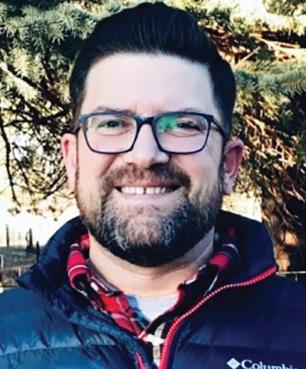
Naureen Khan
Communications and Marketing Manager 503-837-1802
naureen@sedcor.com
Abisha Stone
Economic Development Manager – Yamhill County 503-837-2131
astone@sedcor.com
Alex Paraskevas
Economic Development Manager – Polk County
Rural Innovation Catalyst 503-931-3148
alexp@sedcor.com
Kip Morris
Economic Development Manager -– Marion County 503-837-1804
kip@sedcor.com
Being a part of the SEDCOR team and living in the Valley, I am privileged to witness firsthand the profound impact that natural resources and agriculture have on our region's economy, identity, and quality of life. The Willamette Valley, nestled between the Cascade Range and the Coast Range, is renowned for its fertile soils, temperate climate, and abundant natural beauty. These characteristics make our region a prime location for agriculture, forestry, and outdoor recreation, driving economic growth and sustainability for generations.
Agriculture has long been the backbone of the Willamette Valley's economy, with a rich history dating back to the pioneers who settled the region in the 19th century. Today, our valley is home to a diverse array of crops, from berries and tree fruits to grass seed and wine grapes. Our farmers, ranchers, and producers work tirelessly to cultivate the land, leveraging innovative techniques and sustainable practices to yield bountiful harvests year after year. Their dedication not only feeds our communities but also sustains local economies, providing jobs, revenue, and opportunities for growth.
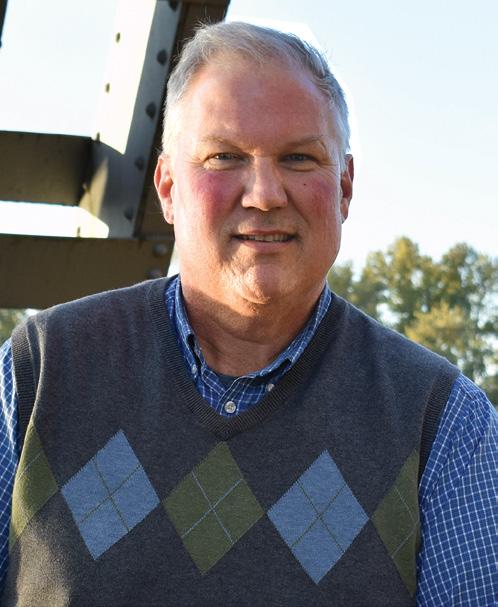
But agriculture is just one piece of the puzzle. The Willamette Valley is also blessed with abundant natural resources, including timber and water. Our forests, which cover nearly 60% of the region, are a vital source of timber for construction, manufacturing, and renewable energy. And our region is home to numerous rivers, streams, and aquifers that provide irrigation for crops, drinking water for communities, and recreational opportunities for residents and visitors alike. Our waters also provide a source for energy generation and supply our food and beverage processors.
From the economic development perspective, SEDCOR promotes a focus on agriculture and food to reflect what the Willamette Valley is known for: we grow a lot of things, and we make a lot of things with what we grow. We have an international reputation for the high-quality products that we export from the valley. This reputation for quality extends to other products manufactured in the region. SEDCOR has recognized this as de facto branding for our region, something we can build on in the future in cooperation with our partner organizations in the region.
Agriculture is the heart of the Willamette Valley economy, touching so many other industries like machinery and equipment manufacturing, warehouse and distribution, food and beverage and hospitality. The Oregon Employment Department reported that total annual payroll in agriculture, food and beverage manufacturing industries in the Mid-Valley was more than $1 billion in 2022. As businesses invest in automation and other initiatives to increase production, I see great opportunities for skills enhancement and career ladder opportunities for many of the 25,000 workers in these industries in the region.
SEDCOR and our regional partners like the Willamette Workforce Partnership and Chemeketa Community College have an opportunity to further develop and refine a strategy targeting agriculture, food and beverage companies and workers that builds on the natural resources, entrepreneurial drive and innovation that have helped establish the Mid-Willamette Valley as one of the highest ag regions in the world.






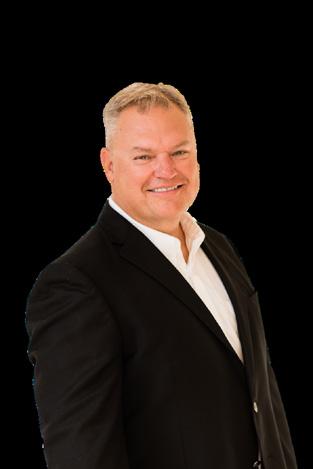



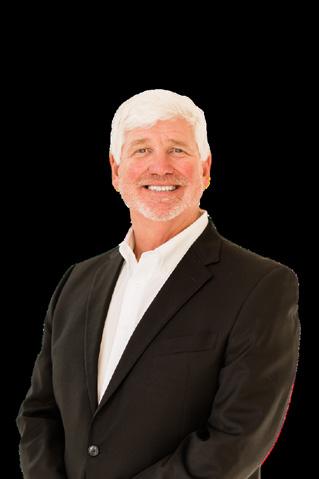




0 3 5 8 8 3 5 0 8





In March, SEDCOR hosted an industrial wastewater training event with industry veteran Bill Herring. This was an opportunity for technicians managing in-house wastewater systems within the region's food and beverage manufacturing sector to learn from Bill. With over 45 years of experience in the field, Bill's expertise provided attendees with comprehensive insights into building and managing onsite wastewater systems, as well as leading maintenance and engineering teams in facility design and equipment layout for FDA and USDA facilities. Held exclusively for technicians in the food and beverage sector, the event offered a focused platform to address their unique challenges and enhance their skills. Attendees had the chance to engage with Bill Herring directly, gaining practical knowledge and strategies to optimize their wastewater systems for efficiency and compliance. The training empowered participants with the tools and expertise needed to navigate the complexities of in-house wastewater management effectively.
SEDCOR's Ag Breakfasts, held in West Salem on March 14 and in Mt. Angel on March 19, convened mid-Willamette Valley's agriculture community, uniting growers, processors, producers, and service providers for crucial discussions. Hosted at Chemeketa Eola and Mt. Angel Festhalle, the events commenced with networking and a hearty breakfast at 7:30 a.m., followed by engaging
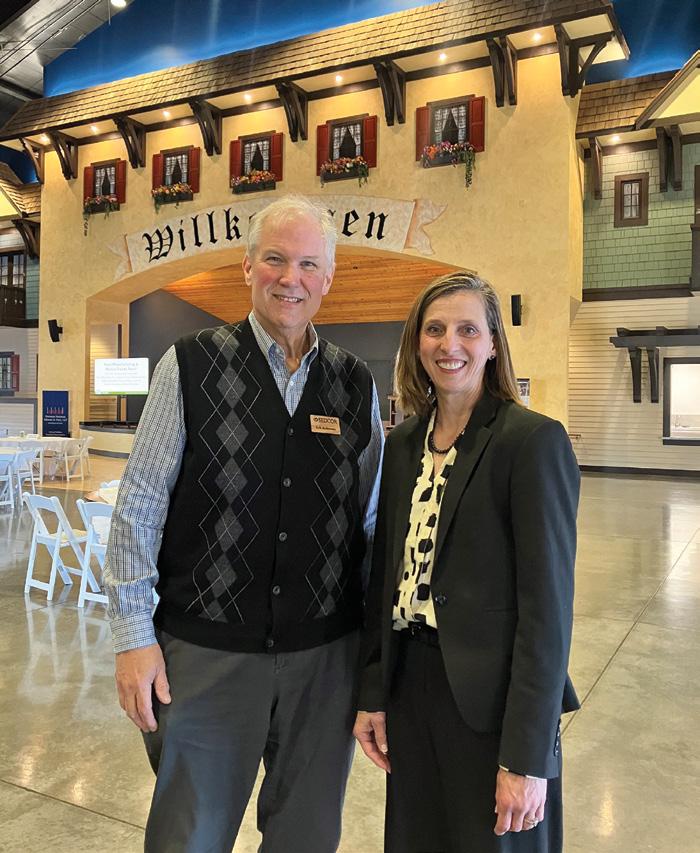
presentations at 8 a.m. In West Salem, Valentin Celaya, Senior Vice President of AgWest Farm Credit, provided an economic outlook, while Marcia Walker, Director of Oregon State University's Food Innovation Center, shared insights on food innovation. The agenda also covered Chemeketa Community College's agriculture workforce programming and electric tractors. In Mt. Angel, Lisa Charpilloz Hanson, Director of the Oregon Department of Agriculture, delivered a keynote, alongside a panel on food manufacturing market trends with Meghan Keeley of Bob's Red Mill and Heather Conwell and Kenny Riedman of Symrise. Both events concluded with updates from SEDCOR, emphasizing their commitment to driving economic development in the agriculture sector and fostering collaboration for continued growth and success.
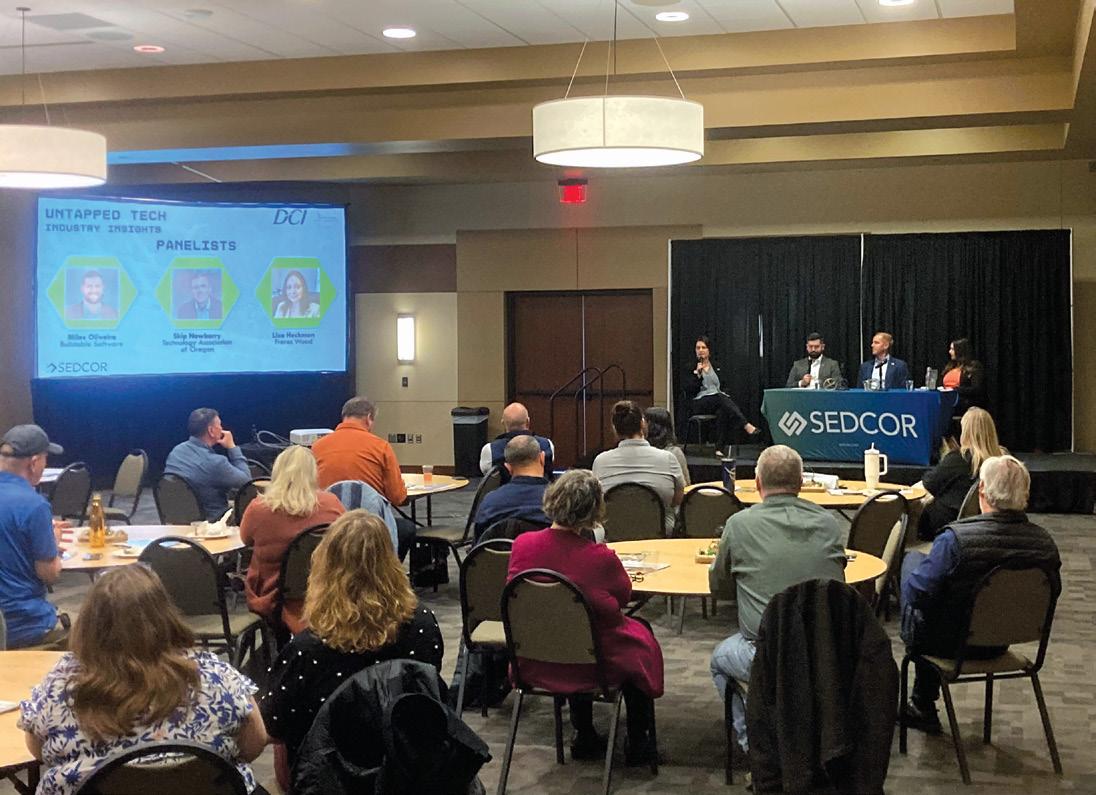
For SEDCOR’s April Industry Insights – Untapped Tech, the panel discussion around technology opportunities and careers in unexpected industries proved to be an enlightening and engaging event. Hosted by an esteemed panel of speakers including Skip Newberry from TAO, Miles Oliveira from Buildable Software, and Lisa Heckman from Freres Engineered Wood, attendees gained valuable insights into the transformative power of technology across diverse sectors. With the rapid evolution of technology, industries are increasingly recognizing its pivotal role in driving innovation and efficiency. The panelists shared their experiences and perspectives on how technology integration is reshaping their respective industries, paving the way for new career pathways and opportunities. From exploring the impact of digital tools and automation to harnessing data analytics and artificial intelligence, the discussion offered a comprehensive overview of the evolving landscape of technology in various sectors.

Hampton Lumber has donated $1 million to the Sheridan School District for the development of the Barbara Roberts Career Technical Center in Sheridan, Oregon. The center, which will provide hands-on training opportunities to high school students, aims to expand career and technical education opportunities for rural students. The 24,000 square-foot facility will offer training in Fire Science, Diesel Tech and Truck Driving, Manufacturing Technology and Agribusiness.
“As a local manufacturer, we see great value in enhancing CTE opportunities for local youth,” said Hampton CEO, Randy Schillinger. “The Barbara Roberts CTE Center will provide unique access to training opportunities for rural students and give them the start they need to embark on meaningful careers in the forest products sector and other local industries.”

Hampton's contribution will allow the Sheridan School District to finish construction of the fire tower and commence demolition of the existing structure to make way for the new center.
Portland-based JPM Real Estate Services has merged with SMI Property Management, a Willamette Valleybased company. The merger will allow SMI to expand its services to the Portland area, while maintaining all employees and properties served by JPM. SMI will manage more than 5,400 multifamily units and 50 commercial office and retail properties in the mid-Willamette Valley and the greater Portland metro area. The merger brings more than 2,100 units into SMI's management portfolio.

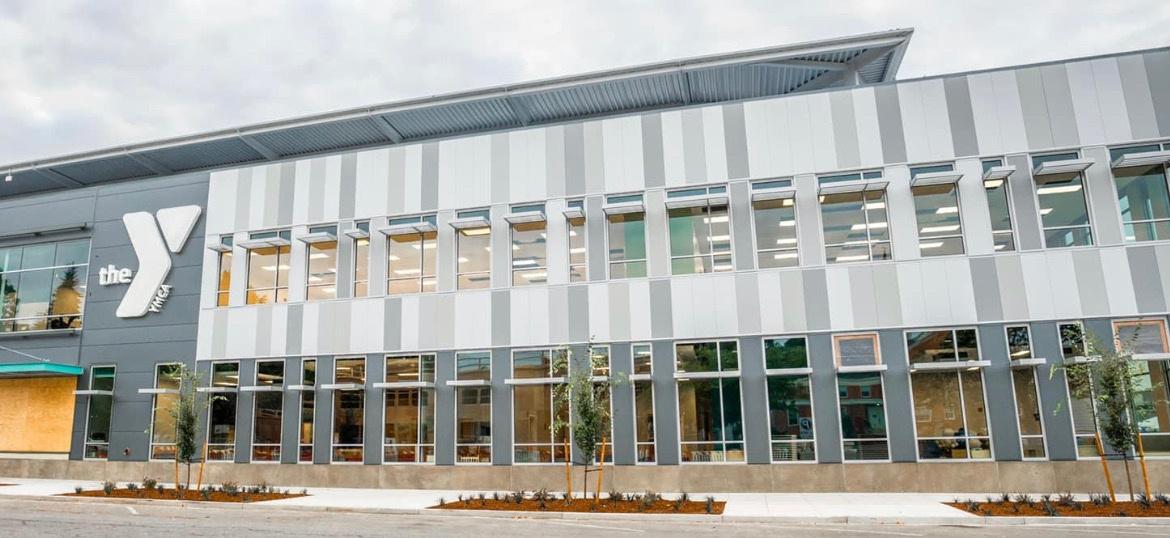

“We are excited about this new opportunity to provide property owners with our wide range of management services and to help renters find fair-priced, accessible housing in the greater Portland area,” said Gabe Johansen, President and CEO of SMI Property Management. “We have served Salem and the Willamette Valley for 48 years and are honored to bring our customer-centered services to the diverse communities in greater Portland metro.”
Continued next page



Continued from page 7

Breaking Donation of $402,000 to United Way of the Mid-Willamette Valley
Capitol Auto Group's employee campaign raised $402,000 for the United Way of the Mid-Willamette Valley. The campaign had an 81% participation rate from their 400 employees and exceeded their goal of $400,000. The fundraising activities included an eating contest, a silent auction, cornhole tournaments, and staff luncheons. The company has raised over $2.5 million for the charity in the last ten years and $1.12 million in just the last three years alone.
Garten Services, a non-profit organization dedicated to empowering individuals with disabilities, has launched a new Landscape Professional Training Program in collaboration with local landscape companies and Chemeketa Community College. The program will cover essential landscape techniques and will be offered free of charge to participants with and without disabilities. It is designed to meet the increasing demand for skilled landscape professionals in the industry. The program is made possible by generous grant




funding from the Oregon Community Foundation and M.J. Murdock Charitable Trust.
For more information about Garten's Landscape Professional Training Program, please visit garten.org or contact Brian Clark at bclark@garten.org. Founded in 1970, Garten provides job training, employment, and day activity services to approximately 500 people with disabilities throughout the Willamette Valley.
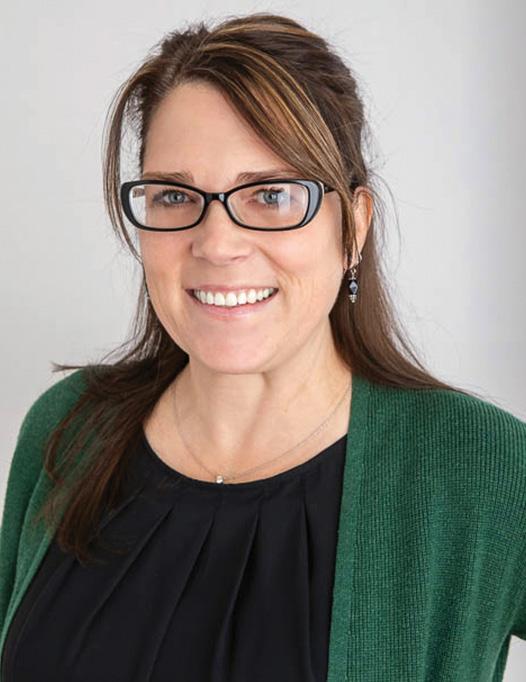
Rich Duncan Construction proudly announces the addition of Lindsay Clark Harrison to as a partner in the company. With over four years of exemplary service as Controller, Lindsay's elevation underscores her significant contributions to the company's success. Lindsay's dedication and financial acumen have been instrumental in driving Rich Duncan Construction's growth. Her promotion reflects the company's commitment to recognizing and fostering talent from within.
"I am honored to become a Partner at Rich Duncan," said Lindsay Clark Harrison. "I look forward to contributing to our continued success."

“Your

Comcast has opened a new Xfinity store in Keizer, located in the Keizer Terrace, to provide a destination for visitors to experience the complete line of Xfinity products and services, including Xfinity Internet, Xfinity TV, Xfinity Mobile, Xfinity Home Security, and Comcast Business Mobile. Customers may receive support, turn in used equipment, pay their bill, and more. The store has a dedicated space for Comcast Business customers and prospects to discuss
Continued next page
Advanced Money Market Account • Tiered rate account, dividend rate rises as your balance increases.
• No monthly service fee
• No monthly transaction fee
• Insured up to $3.25 million
This exceptional level of coverage is attained through a combination of federal insurance provided by the National Credit Union Administration (NCUA) and private insurance from Excess Share Insurance Corporation (ESI).
insured by NCUA
their business technology needs with a subject matter expert. With this new store, Comcast now offers two convenient retail locations in Marion County.
Comcast has invested approximately $534 million in technology and infrastructure in Oregon during the last three years, including expansion and upgrades to its network. As a result, more Oregon homes and businesses have access to Xfinity and Comcast Business products and services, including speeds of 1.2 gigs or more from the reliable Comcast network.
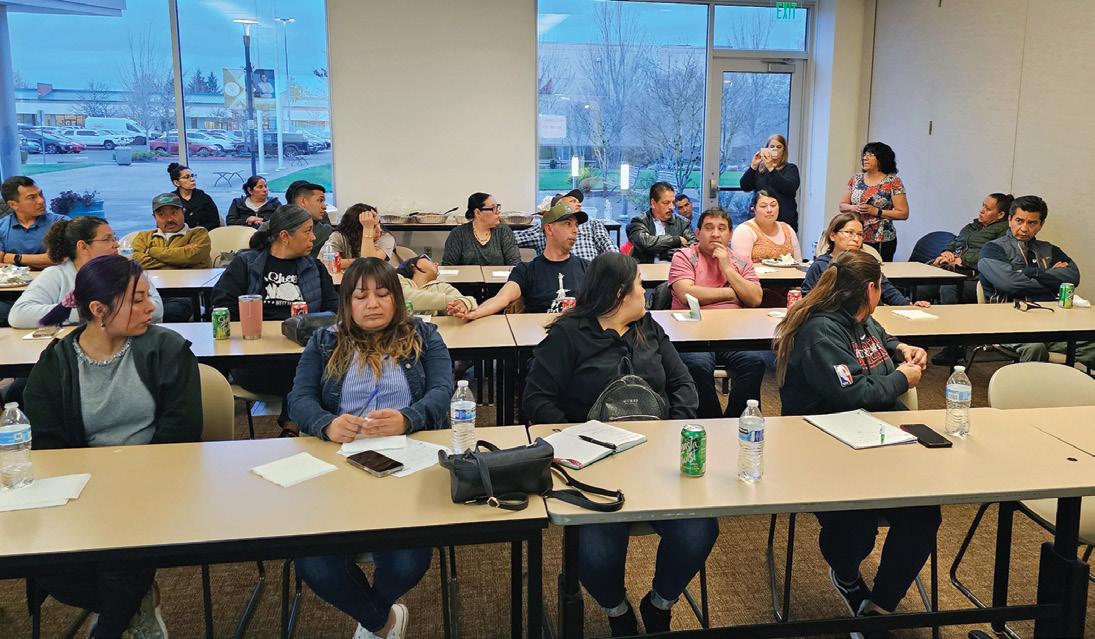
March we kicked off of our fourth Latino Microenterprise Development Program cohort - our first in McMinnville. We're elated to see how many folks turned out! LMDP is a collaboration of multiple program providers including SEDCOR, Latino Business Alliance and Advanced Economic Solutions, that aims to provide culturally specific business development classes paired with mentorship from the business community to entrepreneurs in the Willamette Valley

SEDCOR Board Member Curt Arthur sporting his hat at an SVN Conference in Miami.
seeking to start/scale their business. Want to learn more about the LMDP? Check out the website at latinomdp.org.
In early March, VanNatta Public Relations received notification from the Certification Office for Business Inclusion and Diversity (COBID) that the company earned both its Women Business Enterprise (WBE) and its Emerging Small Business (ESB) certifications, as established in OAR 123-200-1000-2300.

CEO Mary Louse VanNatta, CAE, APR, Fellow PRSA, said, “It was a long and detailed process to achieve this certification. We are pleased to have the opportunity to compete for public relations and event planning contracts as both a womenowned and emerging small business. Organizations that choose companies with these certifications can be assured that Oregon’s COVID reviewed every aspect of the company, from its finances all the way through its staffing management.”

Are you a proud member of SEDCOR? Show off wherever you are in the world in your SEDCOR merch and use the hashtag #SEDCORWhere! Whether you're traveling for business or pleasure, snap a photo wearing your SEDCOR wear and share it on social media with #SEDCORWhere and we might just feature you on our social media!
La Familia Cider, based in Salem, Oregon, has recently expanded its operations with the opening of a new location
Continued on page 10
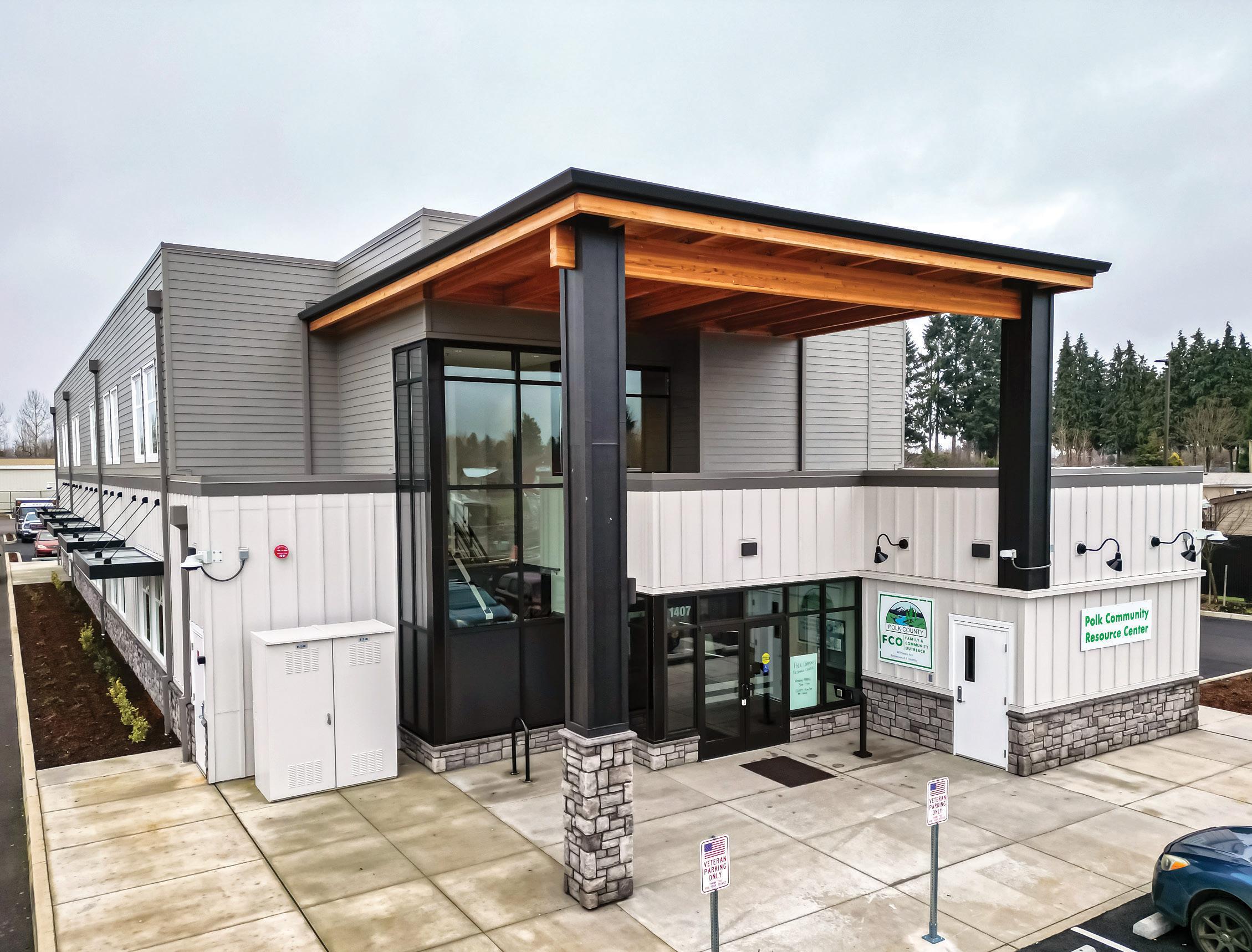


Continued from page 9

in Portland. This move signifies a significant milestone for the company, extending its reach beyond its Salem roots into the thriving culinary landscape of Portland. La Familia Cider is known for its commitment to crafting high-quality ciders using locally sourced ingredients and traditional methods, earning it a loyal following in the Pacific Northwest. The opening of the Portland location reflects the city's reputation as a hub for craft beverages and its enthusiastic community of cider enthusiasts. With its focus on quality, sustainability, and innovation, La Familia Cider is poised to make a splash in Portland's vibrant cider scene, offering residents and visitors alike a taste of its distinctive flavors and it’s “American Dream in Can”. Grand opening details are still to be determined.
Not only is La Familia making strides locally but also internationally. In April La Familia Cider’s Guayaba Cider won silver in the fruit/blended cider category at the 2024 Japan Cider Cup, Japan’s largest celebration of cider event. Salud!

Bauman’s Cider, renowned for its award-winning ciders crafted with locally sourced ingredients, is set to launch its inaugural tasting room and restaurant, Bauman’s on Oak, in Southeast Portland’s Buckman neighborhood. Bauman’s on Oak offers an enticing menu curated by Chef Daniel
Green, featuring locally sourced, seasonal ingredients. The restaurant’s transformation of the former Moon Room into an elegant space is complemented by Chris Leimena's leadership in the front of the house, providing full table service alongside a bar with more than 30 taps offering wine, beer, and nonalcoholic options. The grand opening on April 19th had raffles, tours, pie specials and surprises throughout the weekend.
Founded in 2016 by Christine Walter, a fifth-generation farmer from Bauman Farms, the cidery has amassed over 160 medals and earned four consecutive titles of mid-sized cidery of the year. Bauman’s expansion to Portland comes after starting its cider operation in a small corner of a barn on the farm in 2015. Bauman’s on Oak invites all cider enthusiasts and food lovers to experience its offerings, emphasizing inclusivity and a warm welcome to all.

EMPWR Nutrition's expansion in McMinnville, Oregon, receives a significant boost with a $1 million Governor’s Strategic Reserve Fund (SRF) Grant from Business Oregon. The international company, specializing in co-packaging healthy snack bars, initially entered the United States in early 2022, establishing its presence in McMinnville. Taking over the premises of Betty Lou's Inc., EMPWR builds on the existing manufacturing infrastructure while expanding its footprint by 85,000 square feet. This expansion, which commenced in January 2024, is projected to create around 200 new job opportunities, adding to the already substantial growth witnessed since EMPWR's arrival, with over 75 new employees hired. With a focus on fostering a positive work environment, EMPWR's Vice President of Operations, Sheyla Wulf-Howell, highlights efforts to prioritize employee satisfaction. The collaboration between EMPWR and local partners, including Business Oregon and the McMinnville Economic Development Partnership, underscores a collective commitment to driving economic growth and job creation in the region. Business Oregon Director Sophorn Cheang emphasizes the importance of Food and Beverage manufacturing as a vital industry for Oregon's economy, reflecting on the collaborative efforts to support EMPWR's expansion and the promising prospects it brings for the state's workforce and economic vitality

Founded in 1927, Arthur J Gallagher Co. is the third largest insurance agency in the US. Gallagher is known as a global leader in insurance, risk management and consulting services. Much more than simply an insurance broker, Gallagher is an international group of partners providing cost effective, client centric and expertise-driven risk management solutions for large, medium, small and association clients. Gallagher’s Global Network has partners in 130 countries which share similar vision, culture, values and client focus to serve customers’ business needs with confidence.
Since its founding, Gallagher has led with integrity, ethics and purpose-the building blocks of The Gallagher Way. Founded on principles of transparency and accountability, Gallagher has upheld its commitment to ethical business through decades of growth, change and expansion. For nearly a century, Gallagher has proudly built a reputation of trust and integrity with clients and colleagues.
Rick Skayhan, Gallagher’s area vice president for Oregon and SW Washington, is a former insurance company senior executive and can assist large and small employers with their benefit and retirement programs. He manages the association program for Oregon Aglink providing exclusive insurance benefits to its members in farming, food production, beverage operations and ranching. Rick can be reached @ rick_skayhan@ajg.com.

Headquartered in Ellington, CT, Earthlight Technologies is a family-owned and operated business, proudly serving in Northwest and Central Oregon. As the only SunPower Master Dealer in Oregon, Earthlight takes pride in providing cutting-edge solar and energy solutions for both residential and commercial needs. Offering not only solar services but also energy storage and electric vehicle charging solutions, Earthlight ensures a comprehensive approach to clean energy. From the initial design to full installation and maintenance, the company delivers in-house services characterized by meticulous care and the use of top-quality products that will last for generations. With the rising demand for clean energy, Earthlight Technologies takes pride in delivering unparalleled expertise, ensuring a seamless experience for every project.

A statewide ban on fluorescent lighting has recently passed legislation but don’t panic. Energy Trust is offering small businesses a no-cost LED upgrade that reduces energy, lowers utility bills, and improves lighting quality for safer, brighter work environments.
Complete the online survey today to see if your small business qualifies.
Visit EnergyTrust.org/nocostlighting

In the Fall of 2023, AgLaunch Initiative and SEDCOR applied to the Small Business Administration to establish a Regional Innovation Cluster in the Northwest to focus on agriculture, food, and technology. AgLaunch and SEDCOR had previously partnered on a grant from the Economic Development Administration for a Build to Scale grant which focused on building an ecosystem around agriculture and technology using AgLaunch’s farm-centric innovation model to accelerate startups and get farmers involved early in startups so as to build better products to be used on farm. AgLaunch’s model centers on building an agtech business accelerator –a program to support early-stage agtech businesses through mentoring, training, and networking –- that centers on the farmer. To that end, what distinguishes the AgLaunch agtech accelerator model is that 1) farmers are used to pick the companies that are invited into the accelerator; 2) rather than a 6-week class for the businesses, AgLaunch provides both the classroom portion and also field trials, employing its own agronomy team to set up 2- and 3-year field trials with the network of farmers that participate in the AgLaunch Farmer Network; and 3) the startups actually give up equity in their companies to the Farmer Network. Currently there are four farms in Oregon participating in the farmer network; the entire is comprised of 45 farmers across 11 states. This year Oregon will host field trials for five companies within the AgLaunch portfolio, which itself is comprised of 32 startups (meaning the Farmer Network has a small stake in those 32 companies).


The Regional Innovation Cluster in the Northwest has focused primarily on building foundational networks in the region to help understand the industry’s need for technology and innovation, promote the farm-centric innovation model, identify farmers who are good candidates to participate in the network, and find, support, and recruit agtech startups in the region. Staff have focused on building connections with farmers, retailers, commodity commissions, and staff from organizations like the Oregon Department of Agriculture, Oregon State University and OSU Extension.
Northwest RIC activities will continue to support agtech startups, especially through the recruitment of companies to attend Cultivate Northwest, our three-day bootcamp are a crash course in business fundamentals and training on innovation within the agriculture industry. This year’s bootcamp is May 14-16, hosted in Independence.
The RIC is also supporting connectivity across the farm-totable supply chain, trying to find new markets and outlets for farmers. As was well publicized a few years ago, SEDCOR saw great success in making a local connection. Yamasa Inc., one of the world's largest manufacturers of soy sauce with US headquarters based in Salem, was looking for locally grown hard red wheat. We successfully connected them to Bruce and Helle Ruddenklau of Ruddenklau Farms outside of Amity,
who is now their red wheat supplier. About the same time, as a participant in the Resource Education and Agricultural Leadership (REAL) Oregon program, SEDCOR staff had the opportunity to meet Matthew Cook, head of the Oregon Processed Vegetable Commission (OPVC). SEDCOR staff attended one of the OPVC meetings where we brainstormed on organizing a networking event similar to an idea already percolating in our office. This gave birth to the Locally Grown Supply Chain event which we held in November. We invited larger food processors to have a table where farmers could drop in to come make new connections and had seven larger, regional food processors with tables and 15 farmers attended. We are looking to host that event again this year but will open it up to buyers and farmers of all sizes with the intention of expanding the number of businesses served.
Similarly, our Ag Breakfasts this year also focused on connecting the dots between the regional supply chain around food and agriculture. We intentionally selected Marcia Walker, new director of the Oregon State University Food Innovation Center, to talk about product development, customer preferences, and broad market trends that collectively we should be aware of and paying attention to. At the Marion County breakfast we heard from internationally recognized Bob’s Red Mill and multinational ingredient manufacturer Symrise about how their supply chains work, where and how they source, and how their supply chain is being shaped by international regulations and competition. SEDCOR is grateful to AgLaunch and the Small Business Administration for the partnership and continued support for the Northwest Regional Innovation Cluster. If you are interested in connecting with SEDCOR staff about it, please reach out to Alex Paraskevas (alexp@sedcor.com) and follow SEDCOR on social media.

Bob and Charlee Moore founded Bob’s Red Mill in 1978 with a desire to make whole grain, delicious foods accessible to everyone. That focus has been a constant throughout the years and the driving force shaping our supply chain and the decisions our team makes. Quality, food safety, sustainability, relationships and, of course, cost are part of every supply chain, but Bob’s is somewhat unique in codifying the relationships of those parts. Our Supply Chain team is headed by our VP of Supply Chain, Meghan Keeley. She comes to Bob’s with a background in food safety and quality. She heads a team comprised of Food Safety, QA, Procurement, and Sustainability. Supply Chain, including sourcing, is truly a collaboration of those teams – no one is an afterthought, and all participate in the approval of new suppliers.
We have well-established supply chains for the ingredients we buy. Many of those partnerships were built on a handshake from Bob himself and have grown from there. Those longstanding relationships served us well during Covid and it is impossible to overestimate the value of that kind of partnership. As we grow there is a need to shore up supply chains and look closely at potential gaps. The past few years have made clear the value of local supply chains as well as the necessity of redundancy for key ingredients. We will continue to work with the partners that have made Bob’s what it is today, the farmers, processors, and distributors. As we grow, we look forward to the new opportunities that higher volume provides – bringing on more suppliers, in some cases more direct relationships, and always more learning and awareness around our supply chains.
The coming years will not see us veer dramatically from wholesome, healthy food but there will be new takes on old favorites. Focus on attributes like Gluten Free, Non-GMO and Organic have been main stays of Bob’s since its inception. We will continue to support those attributes, while at the same time exploring the different ways that Bob’s Red Mill can be part of how we participate in our communities, families, and
friendships through food. We saw a big shift during Covid with everyone rediscovering home-cooked meals. We are now seeing another shift, less clearly defined, of people looking for that same experience but without quite the time investment of, for example, a sourdough loaf baked from scratch.
Bringing new products to market at a company like Bob’s Red Mill is exciting and challenging. We both benefit from, as well as bear the burden of being a manufacturer. Companies that are simply brands don’t have the complications of a manufacturing facility: the labor and overhead of controlling products from start to finish. They also don’t enjoy the benefits of owning the quality of their finished products, directly controlling food safety and all other aspects of production. At Bob’s we take great pride in the products we manufacture and are thrilled to compete with some of the most recognized brands in the world. Playing in that field incurs costs that are not obvious to the average consumer: there are slotting fees (paying to get on shelf), promotional dollars, the cost of packaging design, promotional displays, sampling budgets, advertising dollars, the cost of consumer research and access to data. When all is said and done, the costs of buying the raw materials and putting them in a bag is just one of a long list of expenses that goes into the cost of the product that you see on the grocery store shelf.
In the wake of Bob Moore's recent passing, his legacy as the founder of Bob’s Red Mill continues to resonate profoundly. Since its inception in 1978, Bob's unwavering commitment to making whole grain, delicious foods accessible to all has been the cornerstone of the company's ethos. As we reflect on his enduring vision, we remain dedicated to upholding the values he instilled in our supply chain practices: quality, food safety, sustainability, and nurturing relationships with our partners. Bob's passing is a profound loss, but his spirit lives on in every wholesome product we produce and in the communities we serve.
In the heart of Oregon's renowned wine country, there is a buzz of excitement in the air as the Willamette Valley American Viticultural Area (AVA) celebrates a momentous occasion throughout 2023 and into 2024. It all began on December 1, 2023, marking the 40th anniversary since the federal Alcohol and Tobacco Tax and Trade Bureau (TTB) officially recognized it as Oregon's first AVA. From the banks of the Columbia River to the rolling hills south of Eugene, the Willamette Valley AVA proudly stands, a symbol of four decades of winemaking excellence.
Over the years, this region has become synonymous with quality, boasting over 700 wineries that consistently earn accolades in industry-leading publications' Top 100 lists.
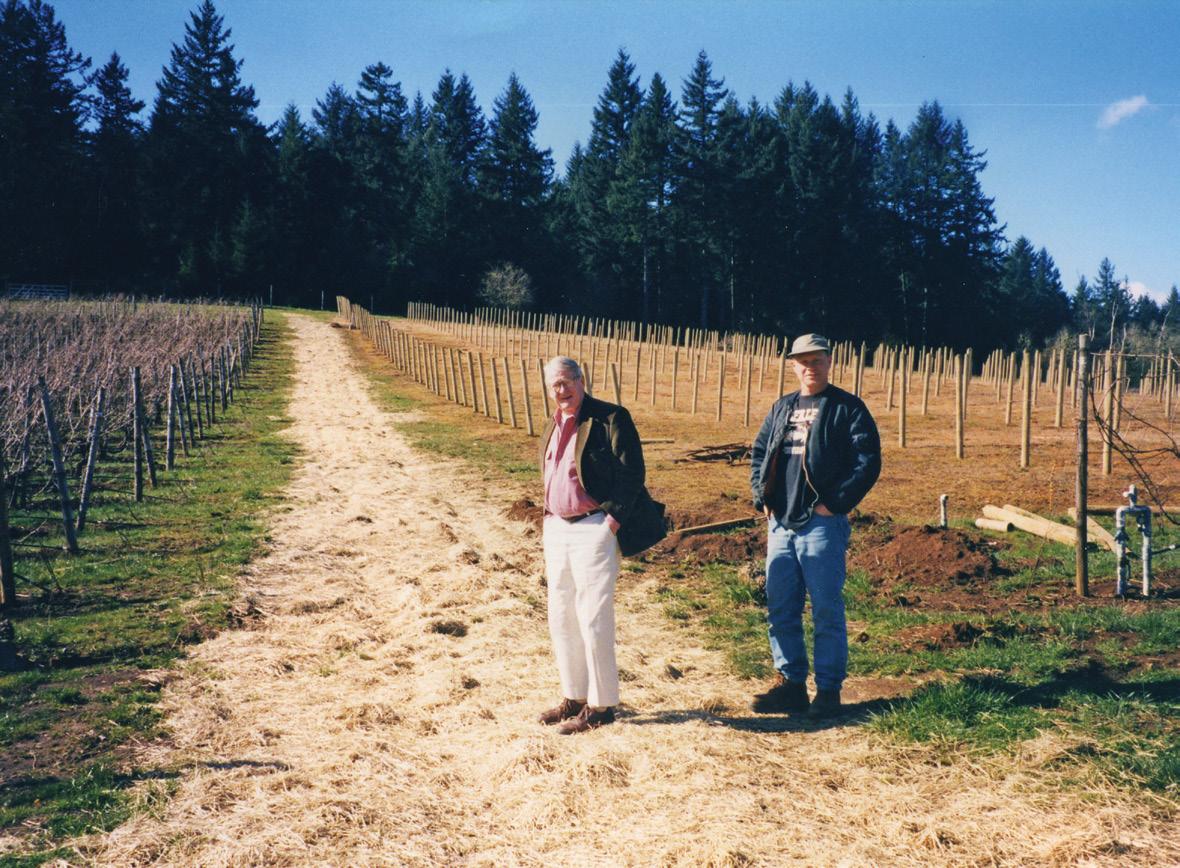

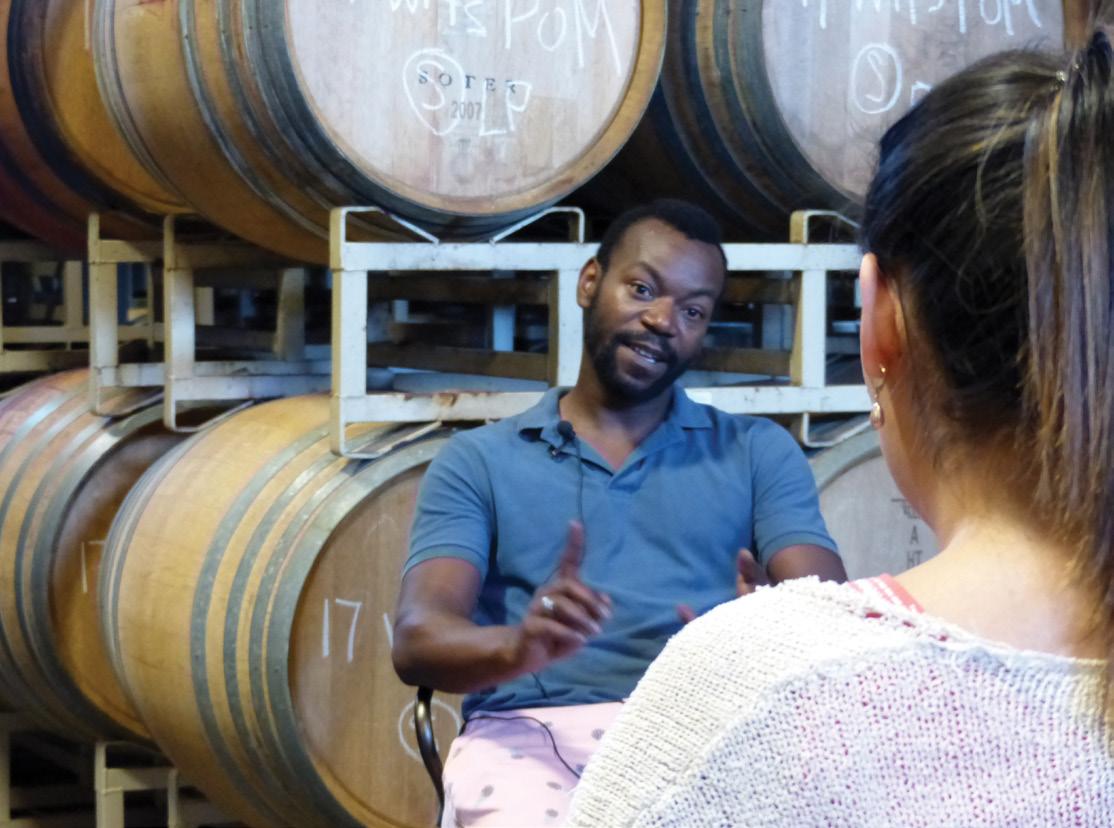

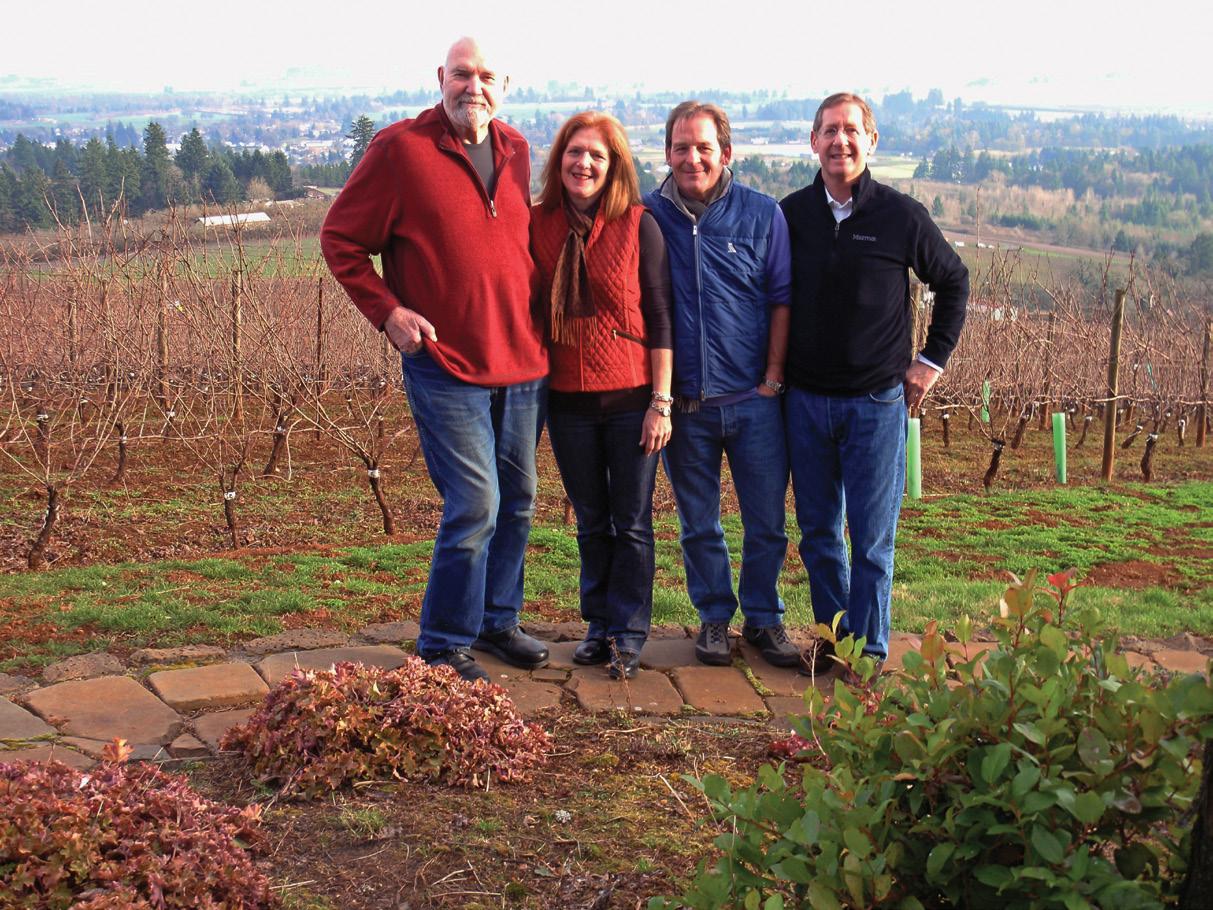
Morgen McLaughlin, executive director of the Willamette Valley Wineries Association (WVWA), explained, "AVA regulations, as established by the TTB, defined a grapegrowing region with unique characteristics. These AVAs ensured consumers received accurate information about a wine's origin."
Renowned for its distinctive terroir, the Willamette Valley AVA covers a vast expanse of 3.5 million acres, encompassing 11 nested AVAs. Its distinctive soil and cool climate have fostered the production of exceptional wines, notably acclaimed for its Pinot Noir. There is also growing interest in other varieties, including Chardonnay, Pinot gris and Riesling.
Reflecting on the anniversary, David Adelsheim, co-founder of Adelsheim Vineyard and the original petitioner of the Willamette Valley AVA, shared his thoughts. "Today, the Willamette Valley boasts a stunning array of vineyards and wineries. Our growth has attracted world-class restaurants and hotels, enriching our towns."
As the Willamette Valley AVA continues to flourish, it remains a pioneer in American winemaking, inspiring future generations. To learn more about the 40th-anniversary history, visitors are invited to explore the official website of the Willamette Valley Wineries Association. www.willamettewines.com


SEDCOR has partnered with Willamette Valley Vineyards to create custom-labeled wine that showcases the region's natural beauty and SEDCOR's values - "Find Opportunities, Create Connections, and Cultivate Collaboration". Each bottle features stunning scenes from the Willamette Valley and includes a little game on the label. The labels are designed by Cindy Tam from Kat Kiddo Creative.




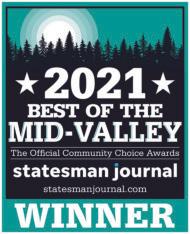
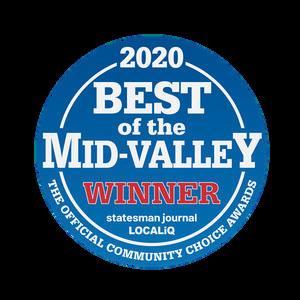


In June 1992, a seed of ambition was planted as Yamasa USA embarked on a journey that would ultimately redefine the landscape of soy sauce production in the United States. With humble beginnings, production commenced in July 1994, representing just a fraction of what it has blossomed into today. Fast forward to the present, as Yamasa USA commemorates its 30th anniversary, it's a momentous occasion to reflect on the company's evolution and its deep-rooted connection with the community of Salem, Oregon.
Why Oregon, you may ask? The decision to establish operations in Oregon was not arbitrary but rather a carefully considered choice. The climate of Salem mirrors that of Yamasa's headquarters in Choshi Chiba, Japan—mild and conducive to the intricate fermentation process vital to crafting authentic soy sauce. Oregon's abundant soft water and favorable conditions for fermentation provided an ideal setting for Yamasa's venture into the American market.
SEDCOR played a pivotal role in facilitating Yamasa's entry into Salem. Assisting with zoning regulations and providing invaluable
support, SEDCOR laid the groundwork for Yamasa's successful integration into the local community.
Over the past three decades, Yamasa USA's relationship with the Salem community has flourished into a partnership built on mutual respect and collaboration. The company’s commitment to supporting local businesses is exemplified by its partnership with the Ruddenklau’s.
In 2019 SEDCOR’s Abisha Stone had stopped by to meet with Yamasa’s CEO Koji Shiraiwa and heard that Yamasa wanted to explore using local hard red wheat at for soy sauce production at the plant Salem. SEDCOR heard this request and connected Yamasa with the Ruddenklau’s who had acreage to trial growing the hard red wheat at their farm.
The Ruddenklau’s farm nearly 1,000 acres near Amity, producing a variety of specialty crops including grass seed, radish seed and beans. The couple also plants wheat in rotation, which provides agronomic benefits and a little extra cash on the side.
The collaboration with the Ruddenklaus not only underscores
Continued on page 18











Yamasa's dedication to sustainability but also highlights its efforts to reduce carbon emissions by sourcing locally. By cultivating soybeans and wheat just 30 minutes away from the production facility, Yamasa has achieved a remarkable 99% reduction in transportation costs—a testament to its commitment to environmental stewardship and community engagement.
SEDCOR also hosted food manufacturers roundtable which Yamasa USA was able to connect with Shinsegae Food Family Corporation, a Korean food manufacturer based in Seoul, South Korea with a facility locally in Salem. Both companies did not know that either were located in Salem until this roundtable. From this introduction, Yamasa was able to partner with Shinsegae to supply them with soy sauce for their products. Before, Shinsegae sourced their soy sauce from California, in large amounts to meet the transportation costs but it proved difficult to store and use before it expired. Now they can source their soy sauce locally from Yamasa in whatever amount and with lower transportation costs.
Yamasa USA's journey over the past 30 years has been one of continuous adaptation and innovation. As consumer preferences and market trends evolve, so too has Yamasa's approach to
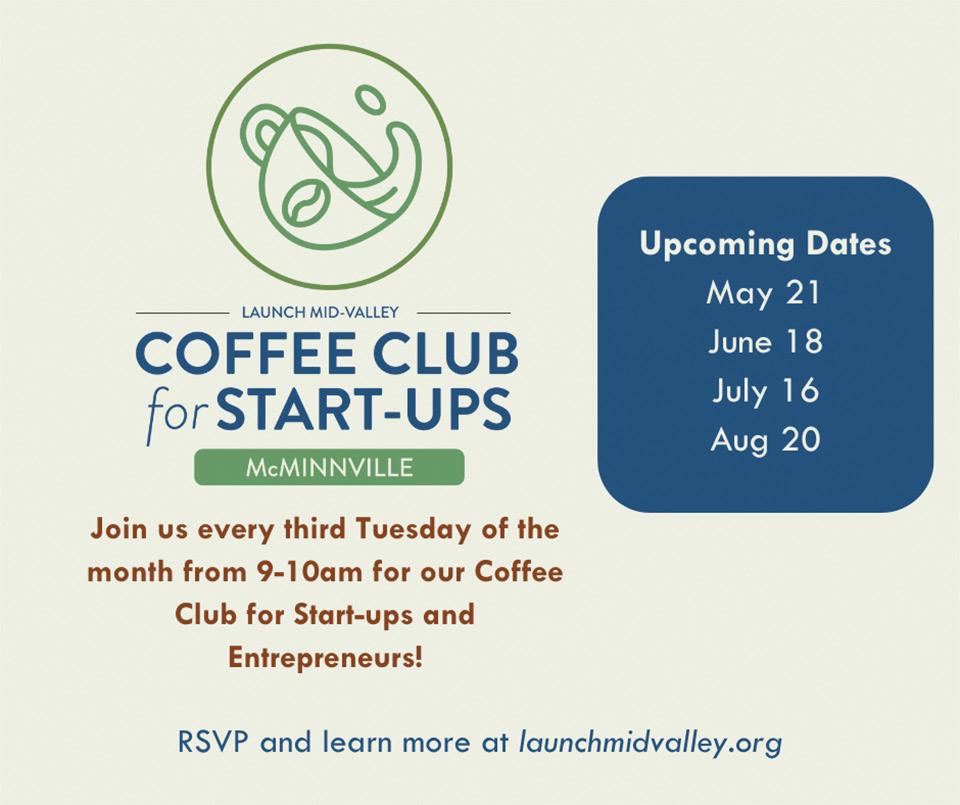
soy sauce production. The company has diversified its product offerings, introducing non-GMO soy sauce and reduced-sodium options to cater to health-conscious consumers.
Moreover, Yamasa's foray into non-soy sauce products, such as ramen broth, reflects its proactive response to shifting consumer demands. By staying attuned to market dynamics and embracing innovation, Yamasa has cemented its position as a trailblazer in the soy sauce industry.
As Yamasa USA looks towards the horizon, expansion plans are underway to meet the burgeoning demand for its products. With the general population growth in the USA and increasing acceptance of ethnic foods among younger generations, the outlook for Yamasa is promising. The company's expansion efforts, including the addition of 11 additional tanks, signify its unwavering commitment to meeting the needs of its growing customer base.
In conclusion, as Yamasa USA celebrates its 30th anniversary, it not only commemorates a milestone but also pays tribute to a legacy of innovation, community partnership, and sustainable growth. From its humble beginnings in Salem, Oregon, to its status as a leading purveyor of authentic soy sauce, Yamasa's journey is a testament to the power of perseverance, vision, and collaboration. As it embarks on the next chapter of its story, Yamasa USA remains poised to continue shaping the culinary landscape for generations to come.




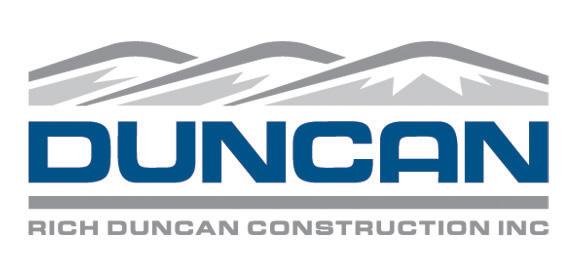




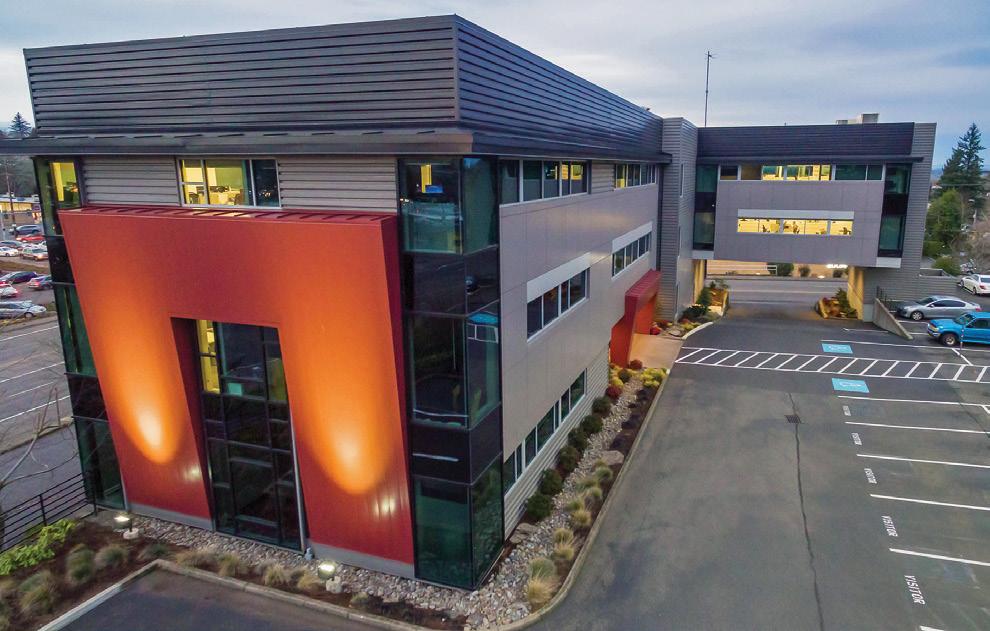
Cale George, a dedicated mayor of Sheridan, Oregon, shares insights into the abundant natural resources that shape the local economy of the Willamette Valley. With a master's degree in Criminal Justice from Western Oregon University and years of service as both a city councilor and the newly appointed Mayor of Sheridan, George brings a wealth of experience and passion to his role.
Sheridan boasts a vast expanse of farmland and timber-rich terrain, encompassing thousands of acres that sustain the agricultural and forestry sectors of the region. From cherished Century Farms to bustling mills, the area's landscape is teeming with opportunities for sustainable growth and prosperity.
Among the often-overlooked treasures of Sheridan is its ample water supply. Despite the city's possession of millions of gallons of water, including the Stoney Mountain Reservoir completed in 2009, accessing this vital resource remains a significant challenge due to incomplete infrastructure. George highlights the frustration surrounding the reservoir's untapped potential and emphasizes his commitment to connecting it to Sheridan's water system.
The Stoney Mountain Reservoir, fed by natural springs and snowmelt, represents a valuable asset that could significantly enhance Sheridan's capacity to meet the needs of its residents and attract large industrial businesses. Currently, the city relies on water from springs near Stoney Mountain and the


South Yamhill River, with a preference for the purity of natural spring water over river-sourced alternatives.

Once the city gains access to the reservoir's 60 million-plus gallons of pristine water, it can not only ensure the well-being of its citizens but also accommodate the demands of burgeoning businesses seeking a reliable water supply. Like most cities of its size, Sheridan’s low inventory of developable industrial land means that each potential new employer should be assessed for their fit in the community to determine the best and highest use for these parcels. With secured access to large volumes of high-quality water, Sheridan could have an advantage over other communities when recruiting businesses who require this community asset – such as the food and beverage industry. George's vision for Sheridan's future revolves around harnessing its natural resources to foster economic growth and create a vibrant, sustainable community for generations to come.



Katie was raised on a farm in the heart of the Willamette Valley where she learned the value of hard work and became passionate about the ag industry. After earning an agribusiness degree from West Texas A&M University she worked on cattle ranches across the Texas Panhandle, deepening her understanding of the agribusiness industry. Receiving her insurance license in 2011 and focusing on agribusiness insurance in Hereford Texas in 2019, she is not new to the insurance business. Now with Hagan Hamilton, she brings her experience and understanding of ag to better serve the Pacific Northwest. She is perfectly situated in our Salem office to provide excellent service to all the surrounding farms and ag related businesses. Call Katie at 503-565-3323
katie.adams@haganhamilton.com haganhamilton.com

• Experience the personalized care you expect from a community bank with access to modern banking technology that makes managing your money, and running your business easier�
• Benefit from a relationship with your banker and local lending team who make decisions based on knowledge of your business, the community, and the local economy�
www�citizensEbank�com


As I write this article in April of 2024, I feel that I should preface the concerns I will address here with the fact that our economy in Polk County is pretty stable, despite the efforts of our state and federal governments to disrupt it. That is not to say that it couldn’t be better.
I am in my 14th year as a Polk County Commissioner and have spent a good deal of my time (along with many like-minded partners) trying to preserve and defend our natural resource lands, revenues, and lifestyles for the benefit of all the values we hold dear. These efforts aren’t simply meant to keep families on the farm or timber professionals in the woods or in the mills but to preserve essential and easily accessible opportunities for jobs and livelihoods, recreational values and environmental protections.
Polk County has been built on the backs of farmers and loggers before any others in our history. Many of us that work in state and federal policy wonder why we would have to fight so hard to maintain the acres of natural resource opportunities that once brought so much prosperity to Oregon. As we work on policies for ag and forestry, we constantly hear the voices of special interest groups that have enough money and time to rally against farm practices or harvesting a timber crop in the name of clean water or saving a bird from threat in spite of the fact that these industries have evolved to the most advanced on the planet. The technologies that are incorporated into current ag and forest practices are incredible and are almost never credited

for creating a sustained yield model that protects our environmental concerns unlike any other time in history.
Recent decisions by the Oregon Board of Forestry (BOF) for example to put enormous restrictions on our state forests harvest land base, thus jobs and tax revenues, has been the most recent blow to common sense Oregon natural resource economies. 650,000 acres of state forest lands will have to abide by new Habitat Conservation Plans (HCP) that will dramatically impact those acres and restrict timber harvests that are essential to supplying raw materials to our mills. Almost all of these acres are in western Oregon and the majority are in the northwest corner of the state that includes Marion, Polk and Yamhill counties. The industry professionals and local governments representing the Oregon forest sector spent nearly 3 years with counter arguments backed up with science trying to get these appointed BOF representatives to find a better balance for habitat concerns that wouldn’t decimate the wood products industry, local governments and the Department of Forestry. Our efforts fell short of the goal in a 4-3 vote by the BOF this year and many Oregon citizens, wood products businesses and jobs, and local government revenues will suffer as a result.
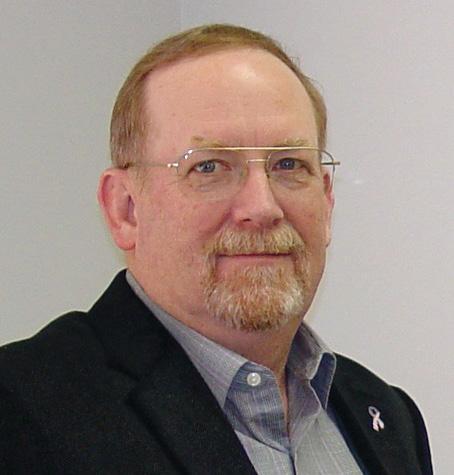
The battle for our harvest land base doesn’t end there, however. While this fight over HCP has been going on, our federal land managers have been quietly working toward limiting the volume of green tree sales (merchantable logs) in both the Bureau of Land Management (BLM) and US Forest Service (USFS) lands while fire consumes more acres than we can put up for sale to mills. Then comes the insanity that when we do lose millions of board feet to fire those land managers under federal rules won’t permit salvage of very merchantable timber, thus leaving billions of dollars on the ground to rot and discharge stored carbon.
Our most heralded wood products businesses in the mid-Willamette region that are known for top-level advancements in delivering laminated structures and top-quality lumber milled from western Oregon fir will be faced with a supply chain challenge we have never seen before. The strain on raw materials for our wood products industries has forced many mill operations to close recently and we will likely see more of these losses in the coming few years. Oregonians desperately need to understand the economy we are needlessly extinguishing.



In recent years, the agricultural sector has undergone a transformation that can only be described as revolutionary. This evolution is not just about changes in farming practices; it's about how agriculture is becoming a pivotal player in supporting and advancing other industries, notably food processing, manufacturing, and biotechnology.
Today, agriculture is far removed from the pastoral scenes often depicted in art and literature. It's now a high-tech arena where modernization and new technologies play critical roles in increasing efficiency, crop yields, and sustainability. Precision farming, data analytics, and advanced machinery are no longer the future of agriculture; they are the present.
Using cutting-edge technologies such as drones for aerial surveillance, mobile devices for real-time field monitoring, and sophisticated data-analysis apps has revolutionized how farmers approach crop management and fieldwork. GK Machine, a leader in Ag-focused manufacturing, embodies this shift towards technological integration, designing equipment that incorporates robotics, high-tech sensors, and automation to enhance agricultural processes.
The ripple effects of modern agriculture extend far beyond the farm. The advancements in crop yields and quality resulting from new agricultural technologies directly benefit the food processing industry by providing a more reliable and varied supply of raw materials. This, in turn, enables the production of diverse and higher-quality processed foods.
Furthermore, the synergy between agriculture and biotechnology has fostered innovations like genetically modified crops, improving pest and disease resistance and ensuring more stable yields. These advancements contribute to a lower environmental impact, a key concern in today's climate-conscious world.




Agricultural machinery's increasing complexity and technicality in manufacturing have opened new markets, necessitating specialized equipment that meets the modern farmer's needs. This trend underscores the interdependency between agriculture and manufacturing, a relationship poised to grow even more vital as both sectors evolve.
While the benefits of technological advancement in agriculture are clear, they also present challenges. The cost of new technologies can be a barrier for smallholders. Additionally, there's a learning curve associated with these new technologies. Farmers must invest in the hardware and understand how to utilize these tools to improve their operations.
Economic factors further complicate decision-making for farmers. Fluctuating commodity prices, trade issues, governmental regulations, and the unpredictable nature of weather, pests, and diseases add uncertainty to an already complex profession.
The future workforce of the agricultural sector is one of the most pressing questions, with the ongoing rural-to-urban migration and the aging of farmers today. Attracting new talent and ensuring the next generation of growers and operators for a viable future in farming is critical.
The transformation of agriculture through technology offers a glimpse into a future where farming is highly efficient, environmentally sustainable, and closely interconnected with other key industries. The advancements in agricultural technology enhance the productivity and sustainability of farming practices and bolster related sectors such as food processing, biotech, and manufacturing.
However, for this future to be fully realized, it is imperative to address the challenges of access, affordability, and education accompanying technological advancement. Developing strategies to ensure that farmers of all scales can participate in and benefit from the agricultural revolution is essential. By continuing to innovate and adapt, the world of farming contributes to its advancement and plays a crucial role in supporting broader economic development and sustainability goals.











